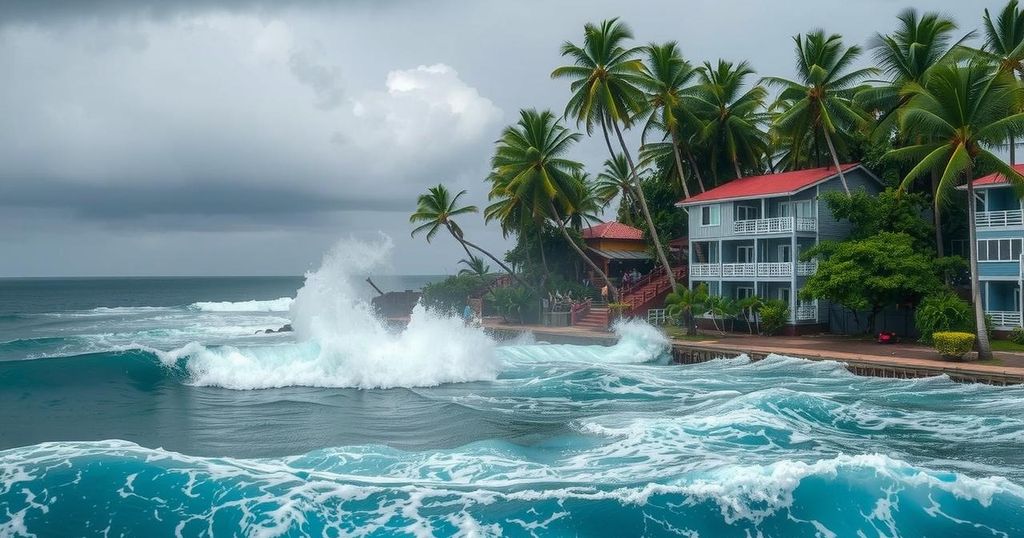Tropical Cyclone Chido: A Catastrophic Event Leaves Mayotte Reeling
Tropical Cyclone Chido devastated Mayotte on December 14, 2024, marking the most powerful storm to hit the area in 90 years. Official reports confirm at least 21 deaths, over 830 injuries, and significant displacement, with numbers expected to rise. The storm caused extensive damage to homes and essential services, prompting emergency evacuations and ongoing relief efforts from local and French authorities.
Tropical Cyclone Chido struck Mayotte on December 14, 2024, making it the strongest cyclone to impact the region in nearly a century. This devastating storm has resulted in at least 21 confirmed fatalities, injuring over 830 individuals and displacing a significant portion of the island’s 320,000 residents, leaving one-third homeless. Authorities are apprehensive that these numbers will escalate as more information emerges regarding the storm’s widespread destruction.
The cyclone made landfall as a category 4-equivalent storm, accompanied by winds reaching up to 230 kilometers per hour (143 mph), wreaking havoc across the island. Emergency measures were activated, leading to the evacuation of approximately 100,000 residents to 70 shelter centers, with an estimated 15,000 experiencing power failures. The infrastructure damage includes critical facilities such as hospitals and schools, compounding the challenges faced by emergency services on the island.
Eyewitness accounts and drone footage reveal scenes of catastrophic destruction, with makeshift homes obliterated and communities devastated. Health Minister Geneviève Darrieussecq acknowledged that the extent of the casualties and destruction is likely understated due to the evolving nature of the situation. The Prefect of Mayotte, François-Xavier Bieuville, expressed serious concerns on possible death tolls, speculating that it may reach into the thousands.
With many health service units rendered non-operational due to severe water damage, the local government has initiated emergency relief efforts. The French government responded by deploying military personnel and medical supplies to aid the recovery. A first aid plane brought in essential resources, and additional military aircraft are anticipated.
The full scale of the disaster caused by Tropical Cyclone Chido remains unclear, but the impact on Mayotte’s social fabric and infrastructure is undoubtedly profound, necessitating immediate and extensive relief efforts to support the affected populations.
Tropical Cyclone Chido represents a significant climatic event for Mayotte, which has not experienced a storm of this magnitude in 90 years. The untimely occurrence of this cyclone during the hurricane season brings into focus the vulnerability of island territories to extreme weather phenomena, raising questions about climate resilience and emergency preparedness. The situation further highlights the potential challenges faced by local authorities in disaster response and recovery, particularly with regards to infrastructure, health services, and community support systems in the wake of such catastrophic events.
In conclusion, Tropical Cyclone Chido has caused unprecedented devastation in Mayotte, resulting in confirmed fatalities, injuries, and widespread displacement of residents. The ongoing relief efforts by both local and French authorities aim to mitigate the impact of this disaster. As recovery operations are implemented, the focus will undoubtedly remain on addressing urgent health care needs and restoring essential services to the affected population. The evolving situation underscores the vulnerability of island territories to natural disasters and the critical importance of preparedness and resilience planning for future events.
Original Source: watchers.news




Post Comment